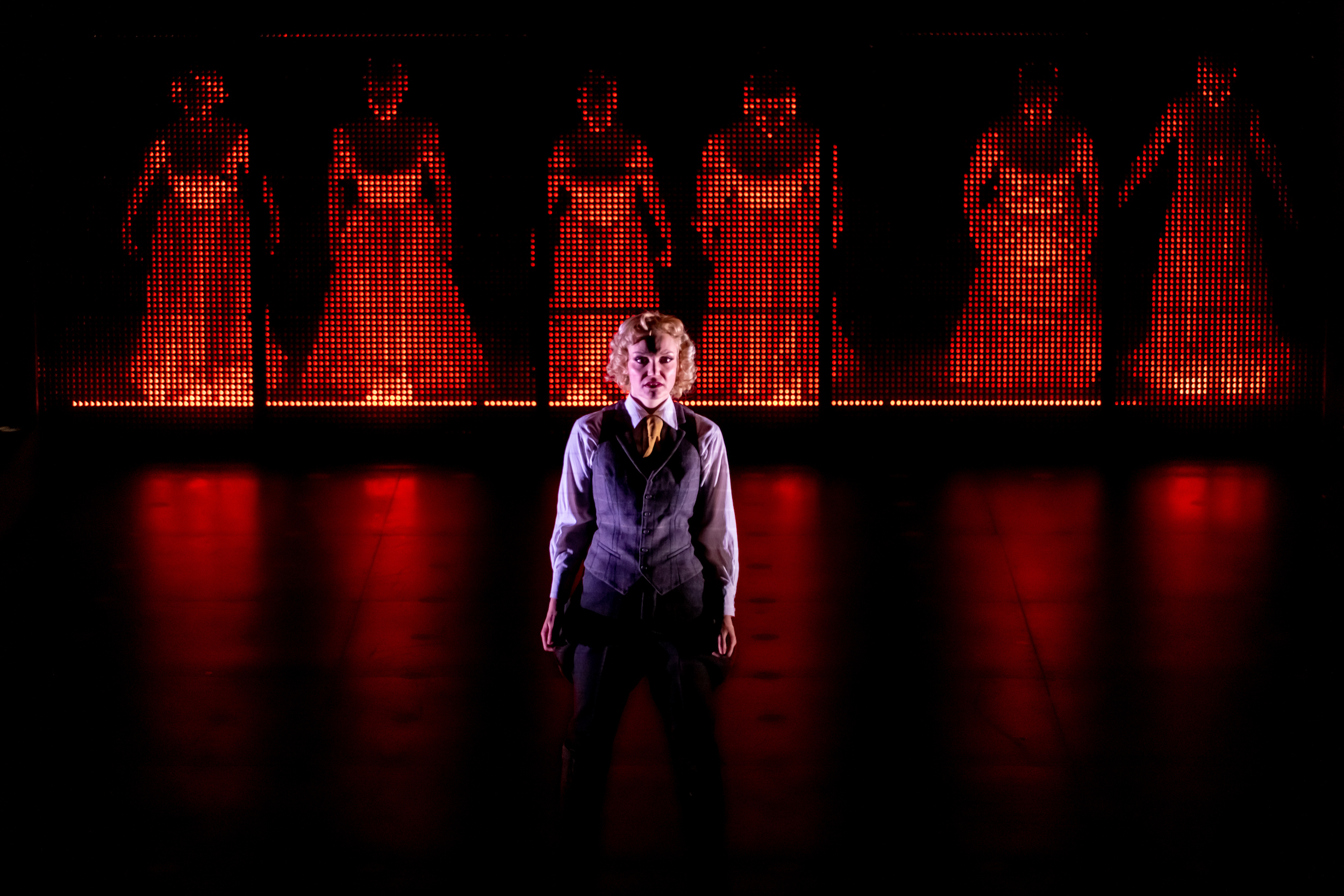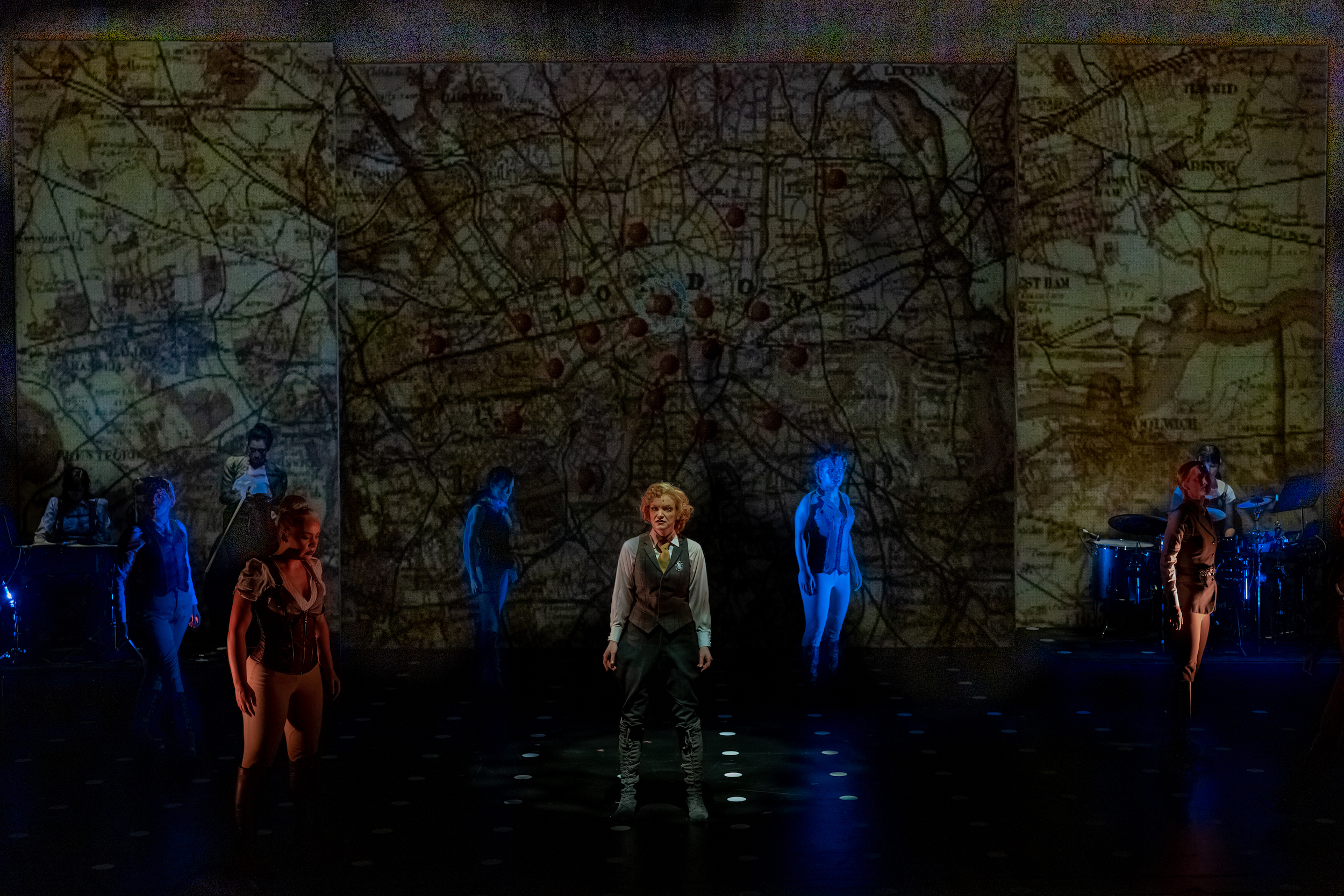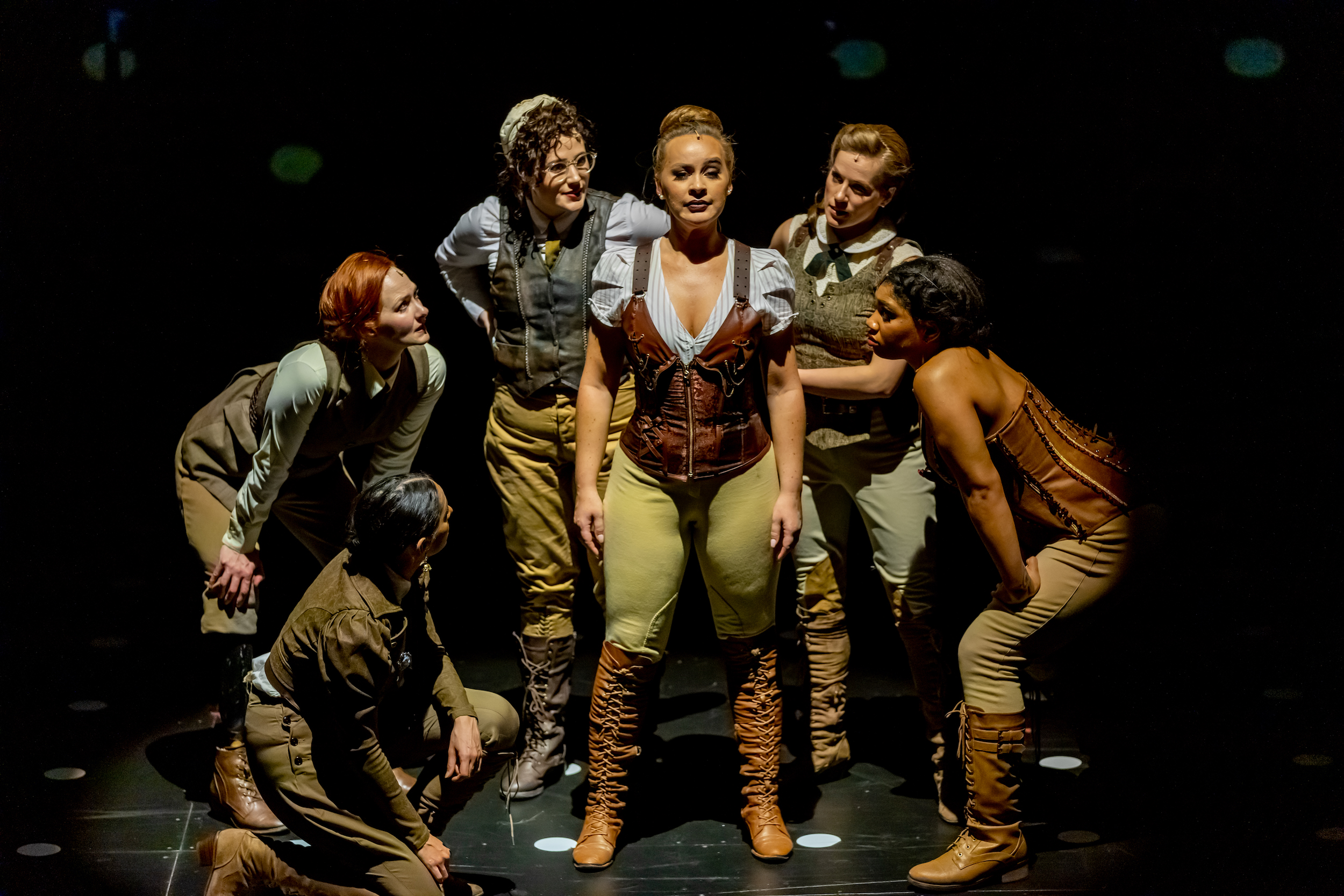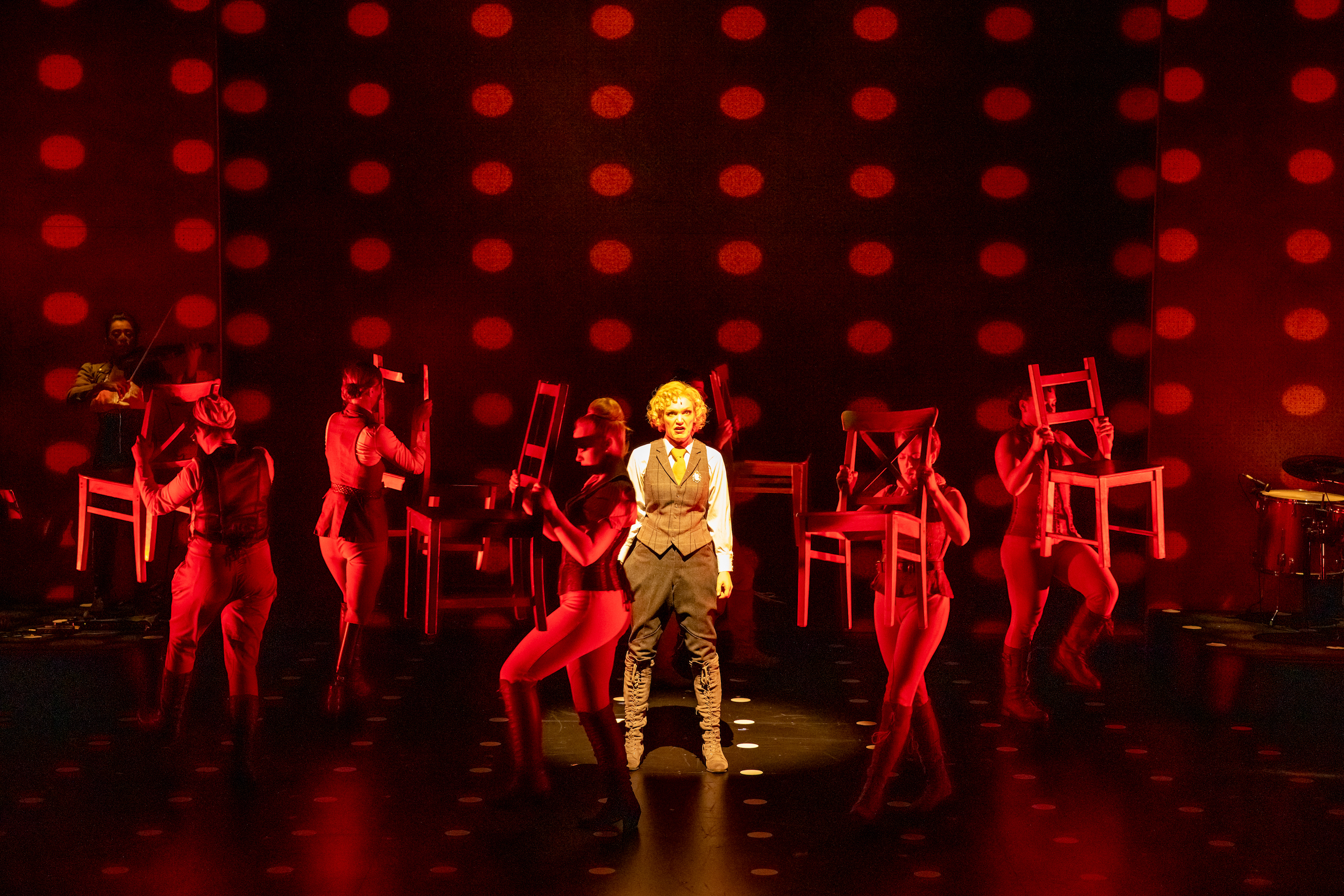
Credit: DB Photographics
York Theatre until May 7, 2022
Tickets from $26 at thecultch.com/event/the-invisible or 604-251-1363
Posted May 2, 2022
If you like your theatre ‘theatrical’ – and why wouldn’t you – don’t waste time reading this review; go online or pick up the phone and buy your tickets.
Production values – set, lights, costumes and projection design by Catalyst Theatre’s incomparable Bretta Gerecke – are sky-high; it’s a feast for the eyes (and, it being a musical, the ears, too.) Wooden chairs light up, bombs appear to explode on a huge map of London, blood-red lights flood the stage then switch to eye-popping electric blue. At times, with sepia-style lighting and costumes in shades of brown (leather boots and jodhpurs), The Invisible has a film noir feel that’s perfectly appropriate for a story set in WWII.

Credit: DB Photographics
It’s the early 40s, Hitler is winning the war, France is suffering under Nazi occupation and England is being relentlessly bombed by the Luftwaffe. A Special Operations Executive has been set up by the British to recruit saboteurs to blow up tunnels, destroy bridges, wipe out railways, slow down Nazi progress across the country and, in Churchill’s words, to “set Europe ablaze”. But in a single night, the Nazis have captured and executed twenty-one British secret agents in France.
Evelyn Ash (Melissa MacPherson), a fictional character loosely based on real-life British Intelligence Officer Vera Atkins, suggests it would be easier to hide female agents in France since the male population has shrunk during the war and sending in men raises suspicion. But women? They are everywhere. Eventually Ash is allowed to recruit, train and send six women behind enemy lines. Until now, women had served mainly in hospitals and munition factories but never in the field, never in combat.
Once in France the fearless six are expected to disappear while carrying out operations. They call themselves The Invisible.

Credit: DB Photographics
Each of them gives us a little backstory: Charlie (Justine Westby), a French-speaking, freedom-loving Romanian; Dot (Kristi Hansen), a one-legged British scholar with a flair for strategy; Jack (Kaylee Harwood), a young widow fighting to make a better world for her daughter; Anna (Tahirih Vejdani), a peace-lover who hopes WWII will be the end of all wars; Maddy (Sarah Nairne), a black chanteuse; and Betty (Amanda Trapp), a Cree woman from Regina. Each one of these characters brings special skills to the team including Betty who “just likes blowing things up” and Anna who proves to be a whiz at Morse code.
The story is told by Evelyn Ash as a memory and we feel from the outset that it will be bittersweet with a hint of guilt. What drives this two hour long extravaganza – a mix of music, dance, special effects and fictionalized history – is, of course, what happens to this group of warrior women when the lifespan of agents during the war was just six weeks.
Written and directed by Jonathan Christenson with music composed by Christenson with Matthew Skopyk, the story does take a while to roll out. In spite of the standout voices and terrific choreographic skill (with the original choreography by Laura Krewski), what we really, really want to know is if the characters, which are so convincingly and passionately created by the performers, survive. There are a song or two that frustrate this curiosity. And if we picked up on a glimmer of guilt at the start, why does Evelyn Ash feel that? Tell us. Tell us.

And, naturally, a story about seven bold women lends itself to an exuberant celebration of women’s abilities – not something, as a woman, I have ever doubted – but which becomes a recurring and somewhat unnecessary anthem. We get it.
Quibbles.
(As an aside, something I found alarming was the apparent absence of any regret for the lives of the five hundred German soldiers killed when The Invisible blew up a tunnel with a train trapped inside. They were, after all, young sons of frightened mothers – soon to be grief-stricken mothers – somewhere. They were not Hitler, not Engels, not Mengele. Just boys.)
But from the rather mysterious opening and closing Romanian folktale – a cautionary tale about being wary when entering dangerous situations, The Invisible is gloriously, unabashedly, unapologetically stylish, polished and theatrical – hallmarks of Edmonton’s Catalyst Theatre.
I was, uncharacteristically, on my feet at curtain.

